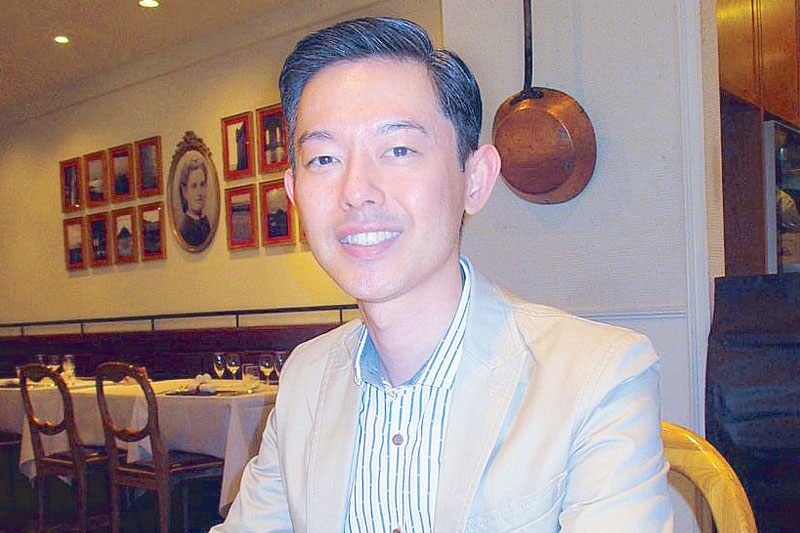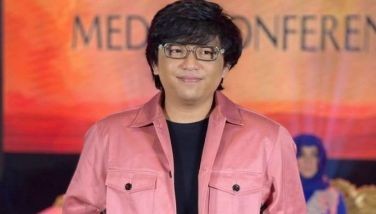Why this JaPinoy is in demand at Nippon TV

Ryu Suzuki, whose Japanese grandparents migrated to the Philippines, is a third generation Japanese-Filipino born at the Makati Medical Center
TOKYO — Last year’s election of Rodrigo Duterte as president of the Philippines got Ryu Suzuki unusually in demand translating from Tagalog to Nihongo for Nippon TV, one of Japan’s top commercial networks and where Suzuki has been employed as an interpreter, researcher and occasional anchor since 2012.
“Duterte was in the Japanese news everyday and I got so busy because they (Nippon TV) needed me so much at the news desk,” Suzuki, a Japanese born and bred in the Philippines, said in a recent interview with The STAR. “They would even ask me what P.I. (curse in Tagalog) meant…basically everything he would say.”
Suzuki added, “I was actually very honored to be able to talk about the Philippines. I was also honored that people here were paying attention to the Philippines in a different way. They took the Philippines more seriously under Duterte because of his foreign policy and controversial pronouncements.”

As an anchor of a Nippon TV educational program
Suzuki, whose Japanese grandparents migrated to the Philippines, is a third generation Japanese-Filipino born at the Makati Medical Center. He attended elementary until first year high school at the International School (then located on Kalayaan St. in Makati) before moving to Japan’s capital for high school.
He finished economics at Oberlin College in Ohio, USA and later earned double master’s degrees in economics and international political economy and development at Fordham University in Bronx, New York — on full scholarship, and with distinction both in economic and political analysis. He stayed in the Big Apple for the next five years and worked in the banking field as financial analyst and manager until he “got sick of New York” and moved back to Japan.
In Tokyo, he worked as assistant manager for financial planning for Coach Japan for two years, before joining Gucci Japan as head of financial planning, also for two years.
In 2012, Suzuki switched career, from a very technical field that deals with numbers and monies “to something more creative.” He found his niche at Nippon TV, researching and translating English news for Japanese viewers, translating Japanese news into English for NBC, and also preparing quarterly financial presentation for English-speaking investors.
He also gets to appear on TV for bilingual educational segments that utilize his excellent command of English and Nihongo. His suave and winsome personality, plus his impressive background in finance and politics, come in handy.
The STAR met Suzuki when he served as interpreter for Japanese celebrities during a media junket Nippon TV hosted to publicize the shows it was bringing to the Philippines via GEM TV Asia on SkyCable Channel, in cooperation with Sony Pictures Television.
“My strongest language is still English, followed by Tagalog and my weakest is actually Japanese,” he revealed, laughing. “They know my Filipino background and I use that to my advantage.”
Nonetheless, Suzuki feels his uniqueness also has its downside. He lamented getting treated as an “outsider” in Japan, not because of his Filipino background, but because he’s “different.”
“I look Japanese, I have a Japanese name, and so they expect me to be purely Japanese,” he pointed out. “But when I open my mouth or because of the way I act, they know right away I’m not really like them.”
But Suzuki is undaunted. Claiming to be proud of his Pinoyhood, he volunteers actively for two Filipino NGOs: the Japanese-Filipino Children Network, which helps abandoned Filipino kids get acquainted with their Japanese fathers and obtain visa to Japan; and Kalakasan Migrant Women Empowerment Center, which assists Filipinas living in Japan, mostly as entertainers.
“I have a Filipino heart,” declared Suzuki, who is a big fan of OPM music and singers like Martin Nievera, Gary Valenciano and Zsa Zsa Padilla. “I will always be Filipino more than anything because I think you develop within the first 10 years of your life and that solidifies who you are for the most part.”
A bachelor at 40, he dreams of settling down someday with a Filipina, whom he considers “the best” when it comes to demonstrating love and affection.
“One thing that I really love and miss most about the Philippines is how everyone says I love you a lot especially moms who shower their kids with I love yous,” Suzuki said. “Brothers and sisters say it to each other, even among friends. In Japan, they don’t say I love you. They rarely say it, even between a couple or parents and children. I think Filipinos express and show their love like no other country.”
Suzuki, meanwhile, said he sees himself retiring in the Philippines, perhaps putting up a business in Cebu or working at a Philippine TV network. By then, he said he hopes the Philippines had already achieved “some kind of economic equality.”
“I studied economics so I always had this ideal scenario that the Philippines someday would be more equal especially because I’ve seen both extremes,” he said. “I feel like the Philippines is one of the most unequal countries in the world, while Japan is probably one of the most equal where people claim to be all middle class and there’s not much disparity.”
- Latest
- Trending






























